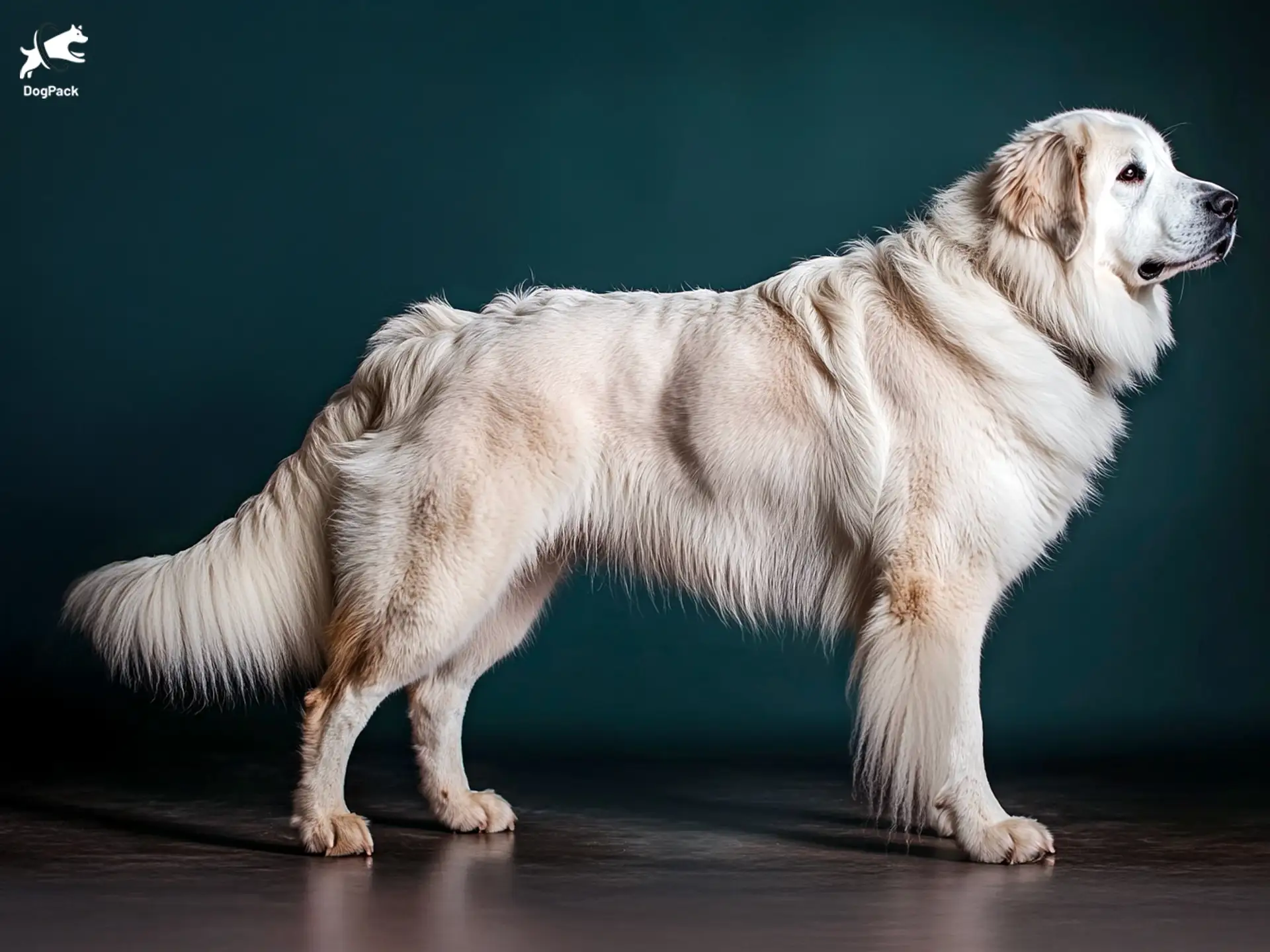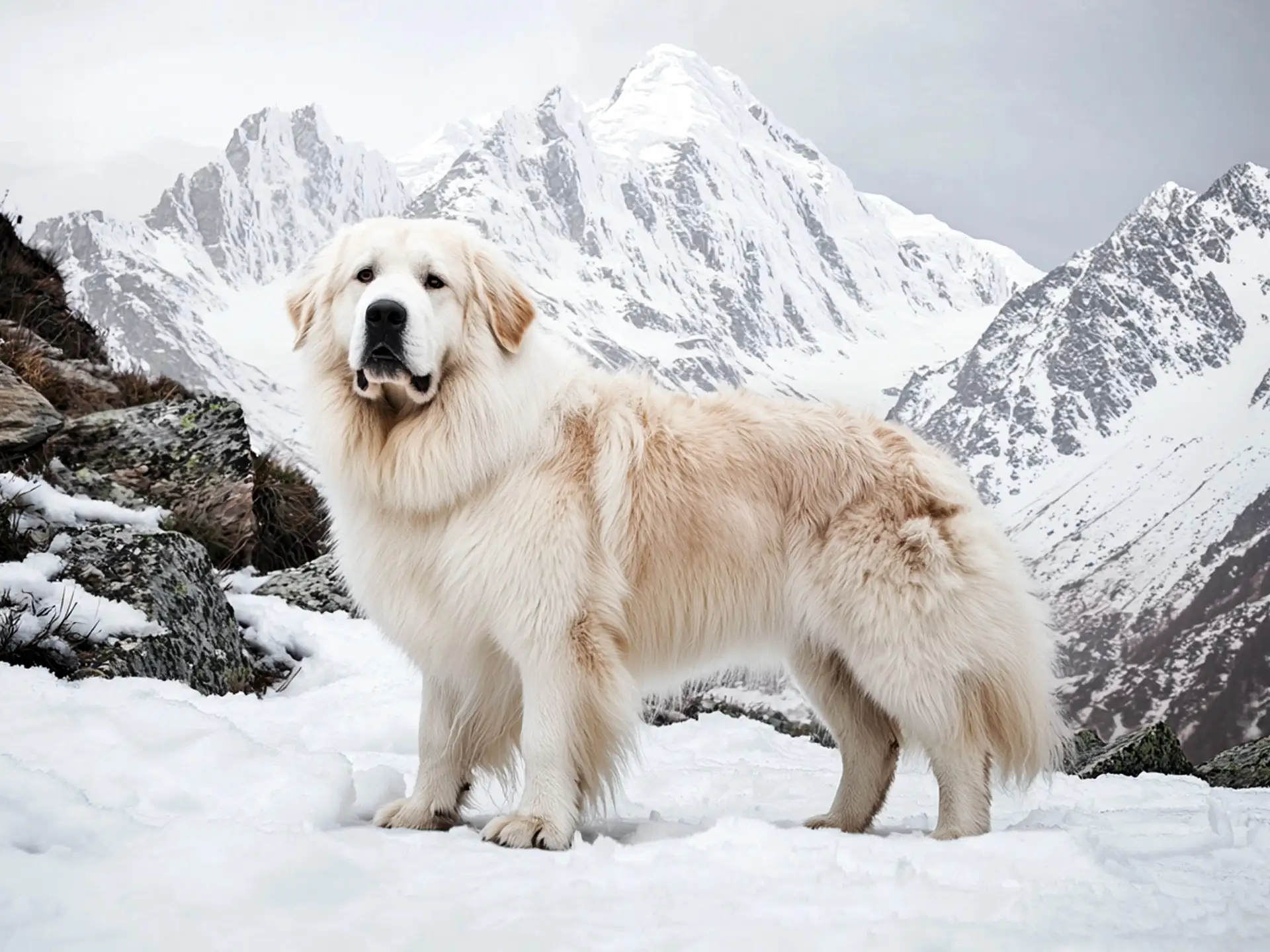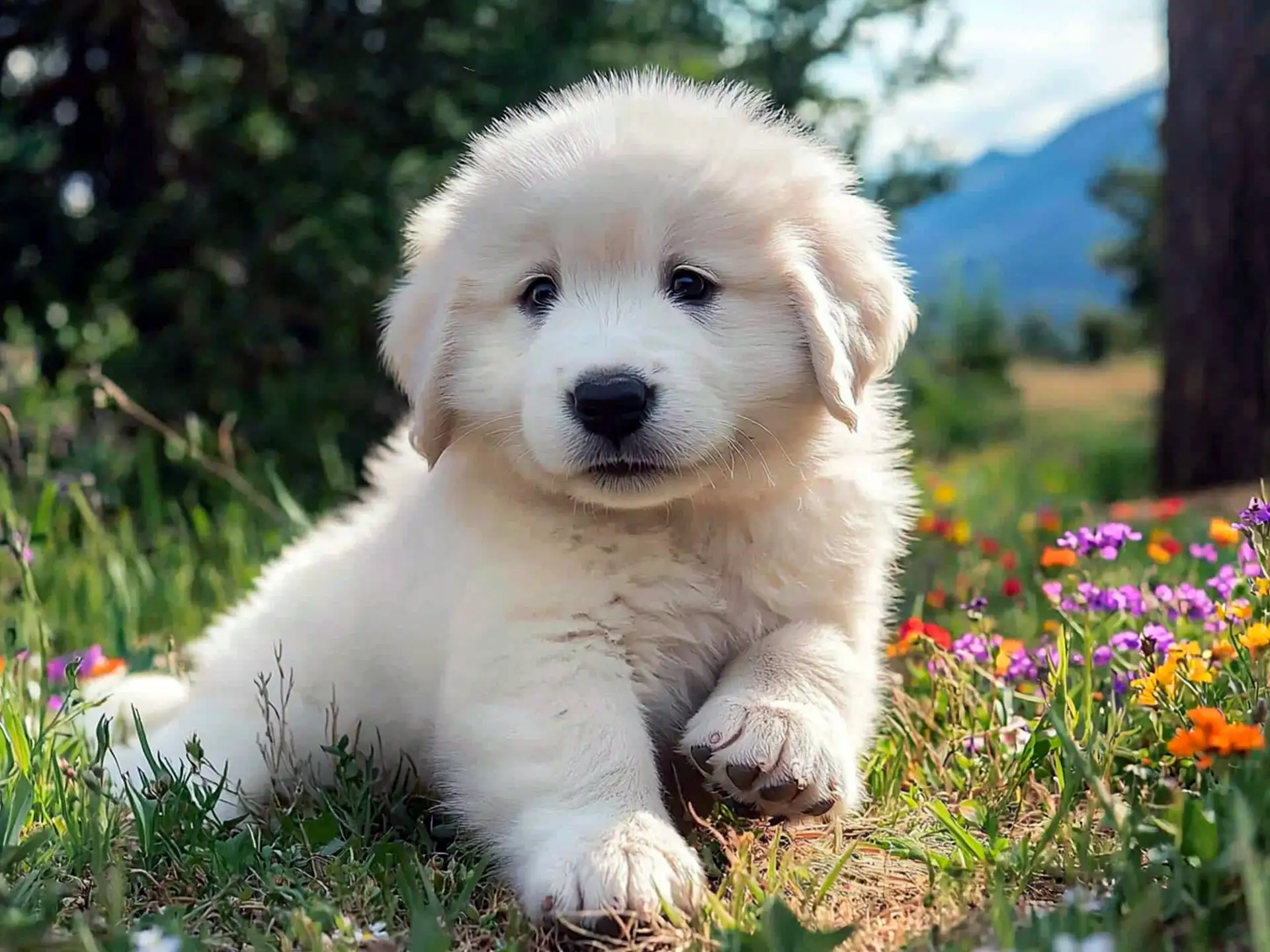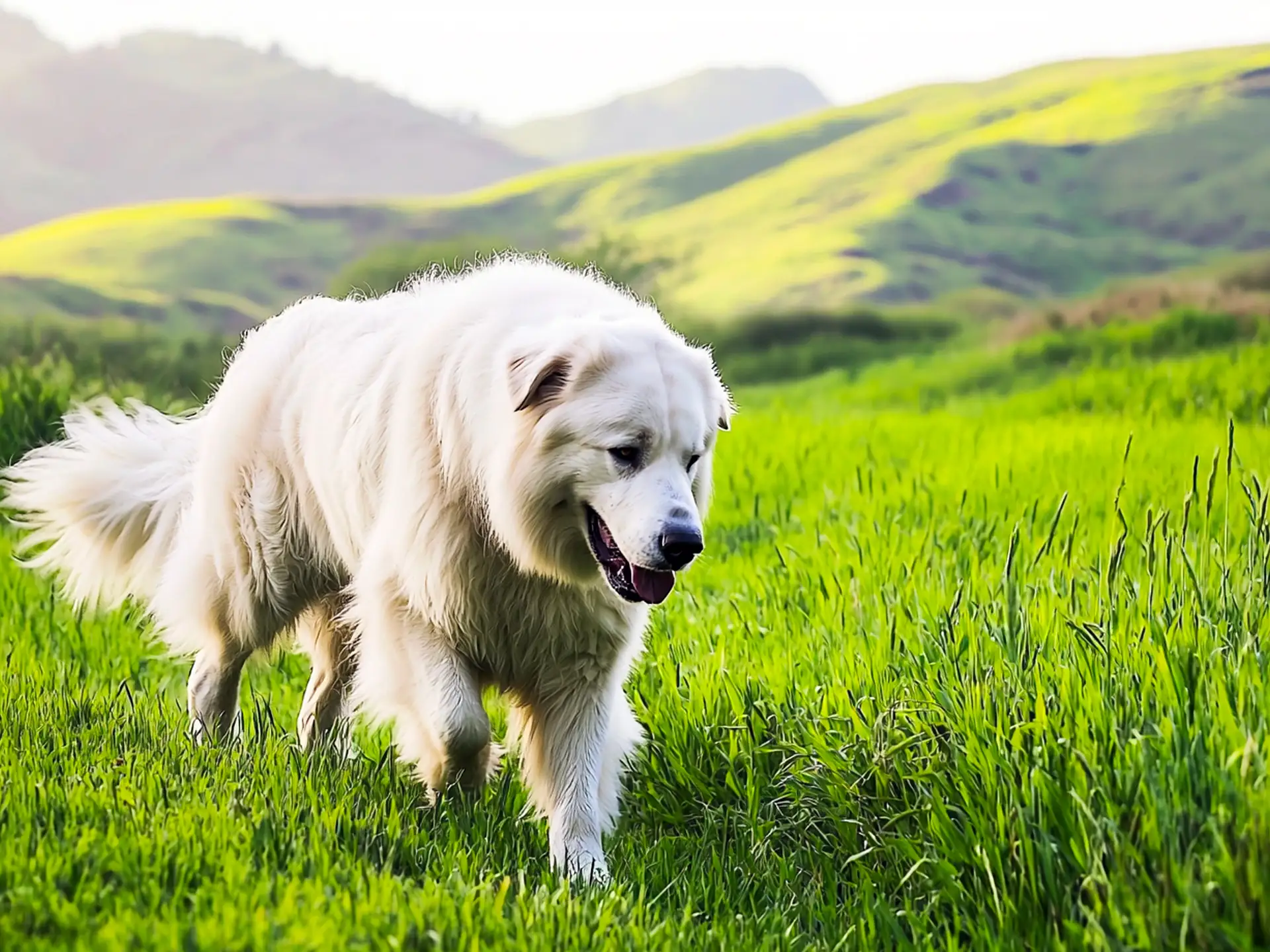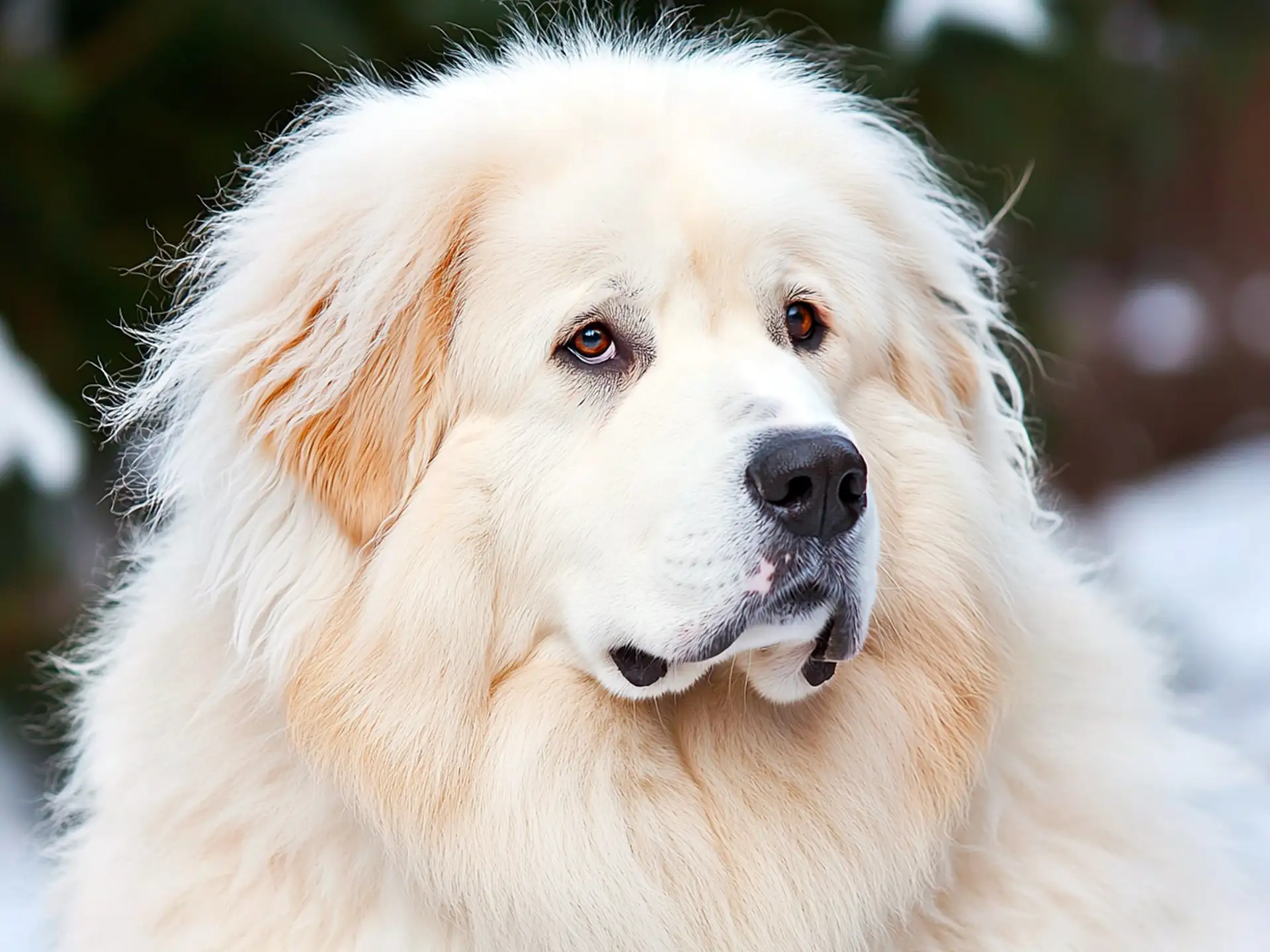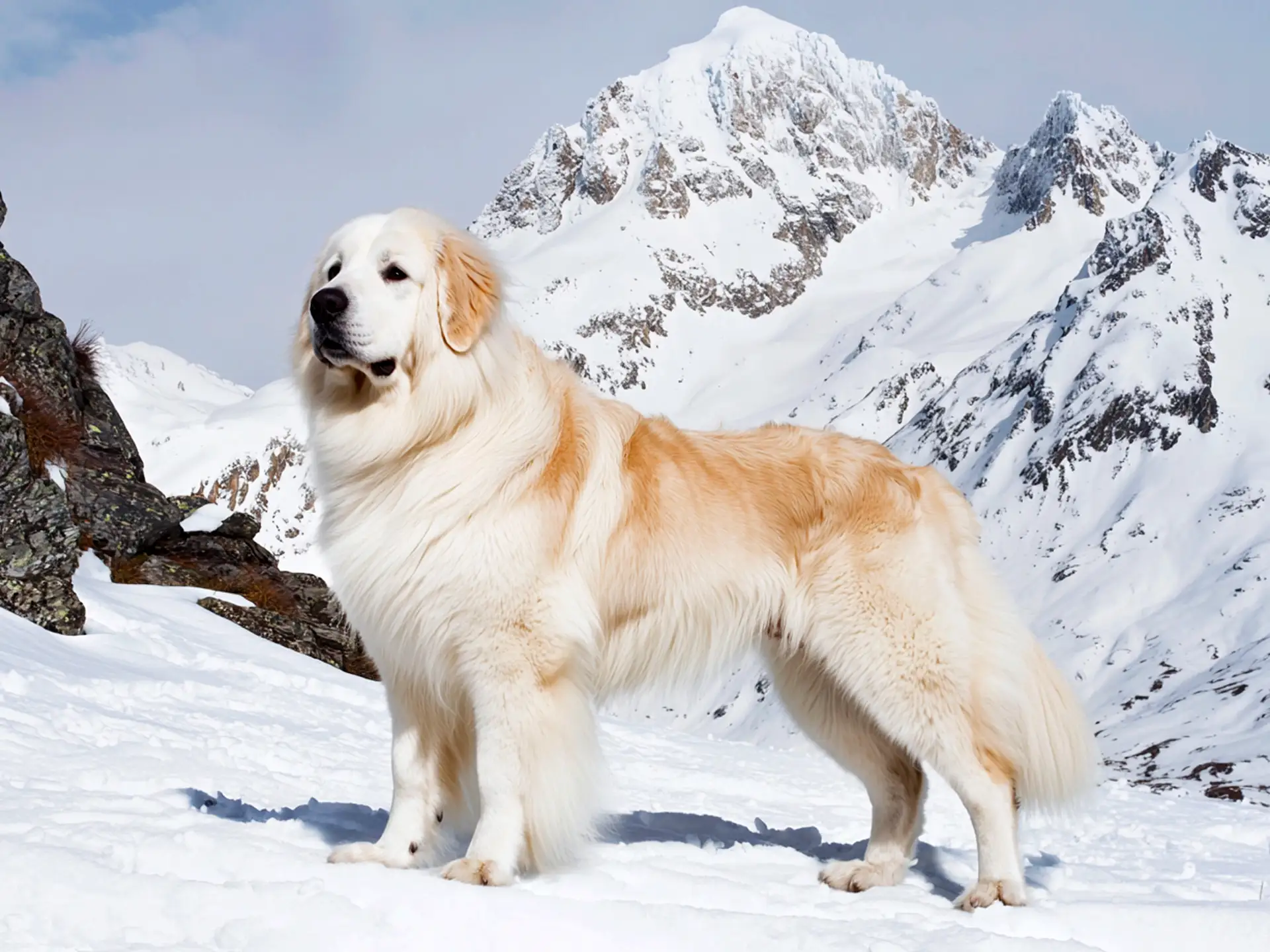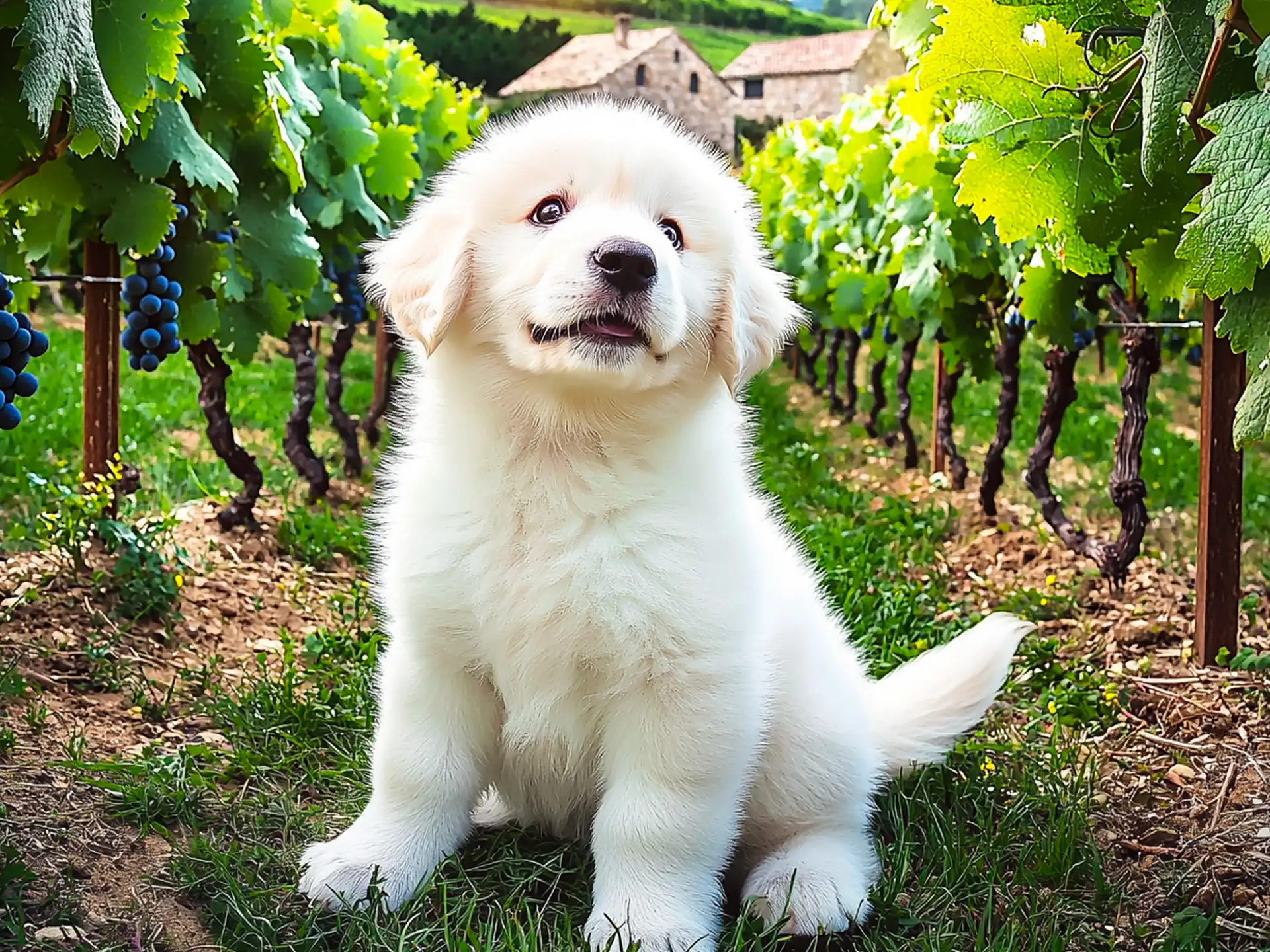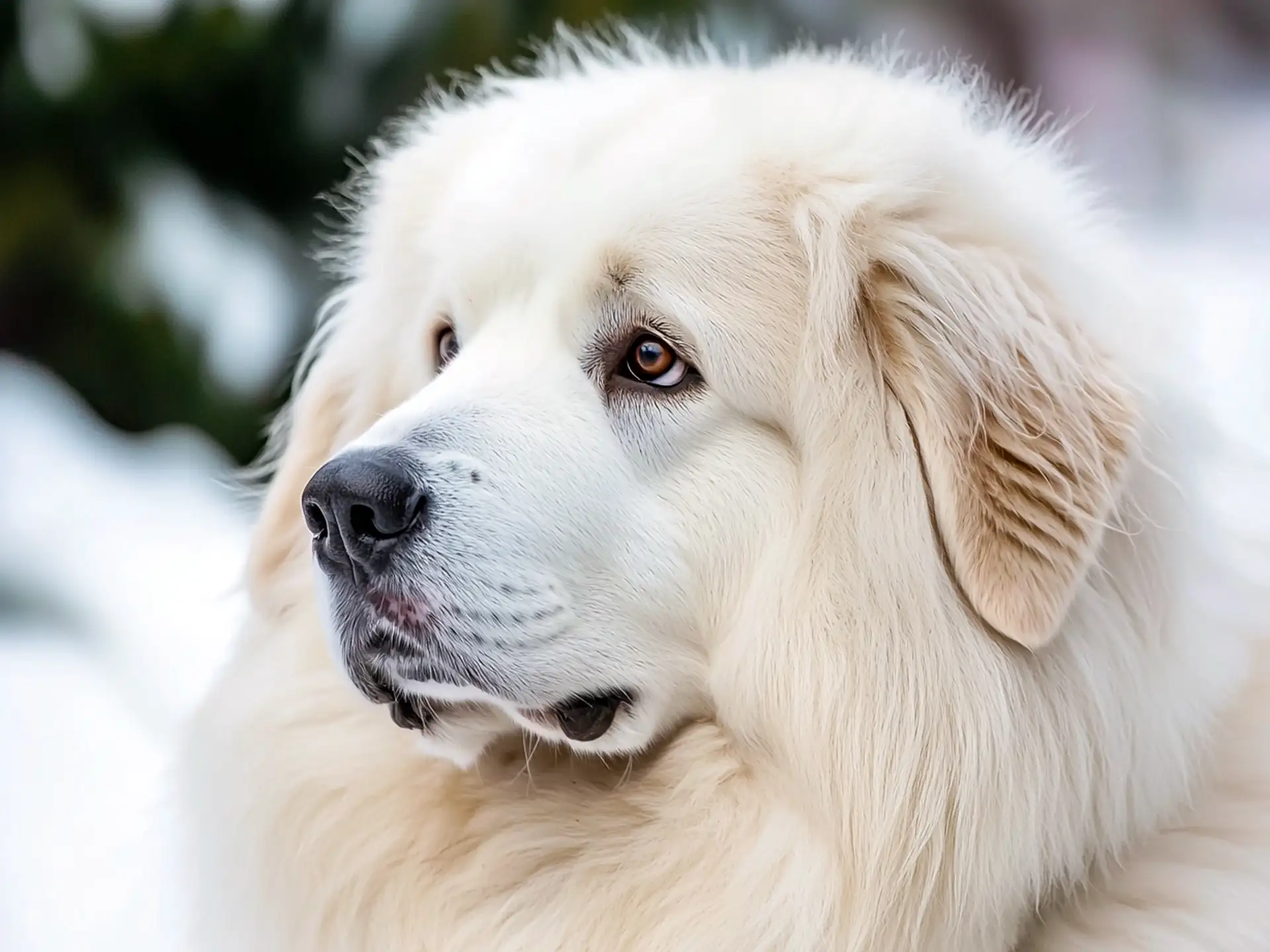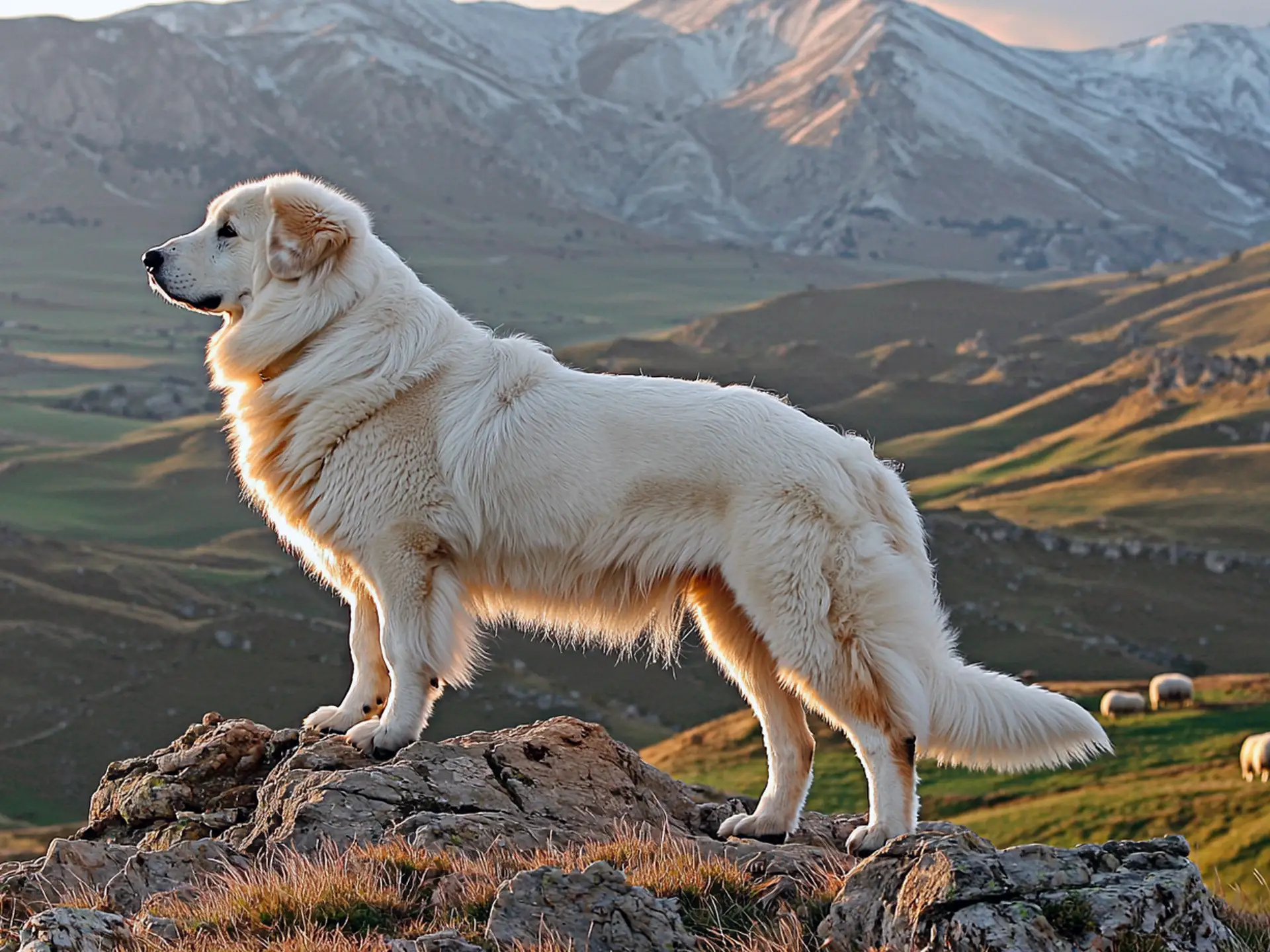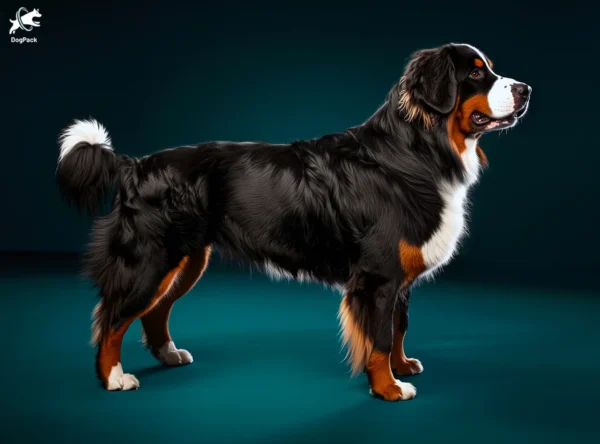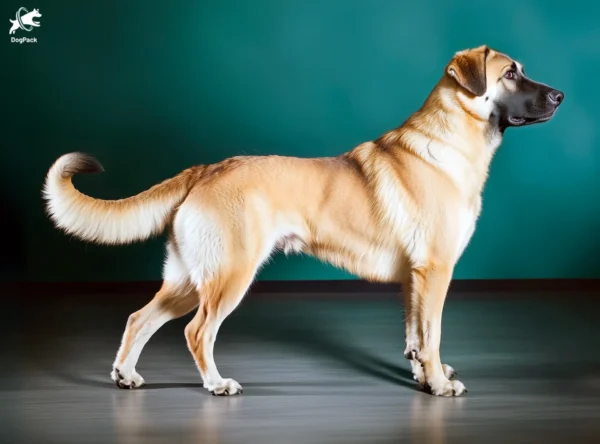Great Pyrenees Dog Breed Info & Overview
The Great Pyrenees, with its majestic white coat and serene expression, looks like it belongs in a fairytale. Named after the snow-capped Pyrenees Mountains, this enchanting breed is more than just a pretty face. Known for their gentle nature, loyalty, and protective instincts, Great Pyrenees make devoted companions who bring both beauty and a calm, reassuring presence to their families.
Characteristics
Pictures
Breed History
The Great Pyrenees, also known as the Pyrenean Mountain Dog, has a history as rich as the rugged landscapes of its homeland. Originating in the Pyrenees Mountains between France and Spain, these majestic dogs were bred thousands of years ago to protect livestock from predators like wolves and bears. Their roots run deep in pastoral traditions, and their bravery made them invaluable to shepherds.
During the 17th century, their regal nature caught the eye of French royalty, and they were named the royal dog of France under King Louis XIV. Their noble demeanor and unwavering loyalty solidified their place in history as both working dogs and companions of the elite.
Though their roles have evolved over time, the Great Pyrenees retains its guardian spirit and gentle heart. Today, they’re cherished not only for their protective instincts but also for their endearing companionship, a testament to their enduring versatility.
Temperament, Personality
The Great Pyrenees is the epitome of calm and patience, earning them the title of gentle giants. They form deep bonds with their families and are particularly attentive and protective of children, often adopting a nurturing role that feels almost parental.
Their natural independence, stemming from years of guarding flocks, can sometimes come across as stubbornness. They were bred to make decisions on their own, which makes training more of a partnership than a one-sided task. This independent streak also means they’re not overly clingy but always keep a watchful eye on their loved ones.
While they’re incredibly loyal, their protective instincts can lead to wariness of strangers. Early socialization helps them distinguish between friend and foe, ensuring their protective nature doesn’t tip into overzealousness. With their family, however, they’re all heart, offering unconditional love and a calming presence.
Physical Characteristics
Few breeds command attention quite like the Great Pyrenees. Standing 25 to 32 inches tall and weighing between 85 to 160 pounds, they are both powerful and graceful. Their dense, weather-resistant double coat is predominantly white, though some display markings in shades of gray, tan, or badger.
Their expressive, almond-shaped eyes radiate intelligence and warmth, while their large, black noses add a striking contrast to their snowy fur. A unique feature of this breed is their double dewclaws, found on their hind legs, which helped them navigate rough mountain terrain.
With a feathered tail that curves elegantly and a mane-like ruff around their neck, they exude regal elegance. Beneath their beauty lies a robust frame built for endurance, enabling them to guard livestock in the harshest of climates with unwavering resilience.
Health Issues
While generally a hardy breed, the Great Pyrenees is prone to some health concerns, often due to their large size. Hip and elbow dysplasia are common issues, so maintaining a healthy weight and providing joint-supportive supplements can make a big difference in their quality of life.
Another condition to watch for is bloat or gastric torsion, a potentially life-threatening issue common in deep-chested breeds. Feeding smaller, frequent meals and avoiding vigorous activity right after eating can reduce this risk.
They may also be predisposed to osteosarcoma (bone cancer) and entropion, where the eyelid rolls inward. Regular veterinary check-ups and genetic health screenings from breeders help address these risks early, ensuring a healthier life for your dog.
Grooming Needs
The Great Pyrenees’ luxurious double coat is as functional as it is beautiful, but it comes with grooming responsibilities. To manage their moderate year-round shedding—and the heavy seasonal shedding in spring and fall—weekly brushing is a must. During shedding seasons, daily brushing helps keep loose fur in check.
Bathing is rarely needed, thanks to their self-cleaning coat, but an occasional bath can freshen them up, especially if they’ve had a particularly adventurous day. Use a gentle shampoo to avoid stripping their natural oils.
Routine care includes trimming their nails, brushing their teeth, and checking their ears for signs of infection. While grooming a Great Pyrenees may seem like a task, it’s a rewarding way to bond with these gentle giants.
Exercise Requirements
Despite their size and working heritage, the Great Pyrenees is surprisingly balanced in its energy needs. They enjoy leisurely walks and moderate activity rather than high-intensity exercise. Aim for about 30–60 minutes of physical activity daily, which can include walks, hikes, or time in a secure yard.
While they might not fetch a ball endlessly, they do enjoy exploring their environment and engaging in mentally stimulating activities. A fenced yard is essential, as their instinct to wander and patrol runs deep.
Variety is key—change up their walking routes or introduce puzzle toys to keep their minds engaged. Just be mindful of their thick coat in warm weather; they’re more comfortable in cooler climates or during early morning and evening activities.
Training Tips
Training a Great Pyrenees can be a test of patience, but it’s also deeply rewarding. Their independent nature stems from generations of guarding livestock without human supervision. To train them successfully, use positive reinforcement—treats, praise, and gentle guidance work wonders.
Socialization from an early age is crucial. Introduce them to a variety of people, animals, and environments to build their confidence and prevent overprotectiveness. Start obedience training early, focusing on basic commands like “sit,” “stay,” and “come.”
Consistency is key with this breed. While they may not obey immediately, they’re intelligent and capable learners who thrive in calm, structured environments. Avoid harsh training methods, as they can damage the trust and bond you’re building with your Pyrenees.
Nutrition, Diet
Feeding a Great Pyrenees requires attention to portion sizes and quality ingredients. Adult dogs typically eat 4–6 cups of high-quality dry food daily, split into two meals to minimize the risk of bloat. Opt for food formulated for large breeds, which often includes joint-supportive nutrients like glucosamine and chondroitin.
Omega-3 fatty acids help maintain their coat’s health and shine, while lean protein supports their muscular frame. Be cautious with treats and table scraps; obesity can exacerbate joint and heart issues.
Puppies have different nutritional needs, so consult with your veterinarian to tailor their diet as they grow. Fresh water should always be available, particularly during warmer months or after exercise.
Adoption, Breeders
The Great Pyrenees Club of America is an excellent starting point for finding reputable breeders who prioritize health and temperament. Ethical breeders conduct genetic testing and provide clearances for common health conditions.
For those interested in adoption, organizations like National Great Pyrenees Rescue connect dogs in need with loving homes. Many Pyrenees find themselves in rescue due to their size and specific needs, offering an opportunity to provide a second chance to a deserving dog.
Avoid puppy mills and unverified sellers. A reputable source will prioritize the breed’s well-being and offer lifetime support for your new companion.
Family Pet?
If you’re seeking a dog that’s both a loving companion and a vigilant protector, the Great Pyrenees is a great match. Their calm, patient demeanor makes them excellent with children, often earning them the nickname “nanny dog.”
They generally coexist well with other pets if socialized early, though their protective instincts may kick in with unfamiliar animals. Supervision is crucial, especially with smaller pets or livestock.
Their large size and watchdog tendencies require a family committed to training, socialization, and creating a safe, spacious environment. For the right household, they’re an affectionate, loyal, and protective addition.
Right For You?
The Great Pyrenees is perfect for individuals or families who value loyalty, independence, and a touch of regal flair. They thrive in homes with ample space and owners who appreciate their guardian instincts.
However, they’re not suited for apartment living or households with limited time for grooming and socialization. Their tendency to bark may also be a concern for those with close neighbors.
If you’re ready to embrace their unique traits and meet their needs, the Great Pyrenees will reward you with boundless love and devotion.
Conclusion
The Great Pyrenees is a majestic blend of strength, gentleness, and unwavering loyalty. Whether patrolling your yard or lounging with the family, they bring a sense of calm and protection to any household. If you’re prepared for their size, grooming, and protective nature, this gentle giant could be the perfect addition to your life, offering a lifetime of love wrapped in a fluffy white coat.
FAQs
-
How do Great Pyrenees handle living with livestock?
Great Pyrenees excel as livestock guardians. They are instinctively protective of sheep, goats, and other animals. Early exposure and proper training ensure they effectively bond with and guard the flock without becoming overprotective.
-
Are Great Pyrenees prone to nighttime wandering?
Yes, due to their guarding instincts, Great Pyrenees are known to patrol at night. Secure fencing is essential to prevent roaming, as they may wander while surveying their perceived territory.
-
Can Great Pyrenees tolerate extreme weather?
Great Pyrenees are well-suited for cold climates, thanks to their dense double coat. In hot weather, they need shaded areas and ample water. Regular grooming helps maintain coat insulation and prevent overheating.
-
Do Great Pyrenees require a lot of mental stimulation?
While they are independent, Great Pyrenees benefit from puzzle toys, interactive play, and occasional training sessions to keep them mentally engaged. Without stimulation, they may develop stubborn or destructive habits.
-
How do Great Pyrenees react to strangers?
Great Pyrenees are naturally wary of strangers due to their protective nature. They are not aggressive but will observe new people cautiously. Proper socialization helps them differentiate between genuine threats and harmless visitors.
Breed Ratings
The Great Pyrenees is smart but can be independent, sometimes preferring to think for themselves.
They enjoy playtime but aren’t overly exuberant, balancing fun with calmness.
Moderate energy levels mean they appreciate daily walks but also love lounging around.
Be prepared for lots of fur; their thick coat sheds heavily, especially seasonally.
Low prey drive makes them generally good around smaller animals when properly introduced.
Regular grooming is needed to maintain their coat, so it’s a bit of a commitment.
They can be trained with patience and consistency but may be stubborn at times.
Fairly independent, they can tolerate being alone for moderate periods.
They are vocal and will bark to alert you of anything unusual.
Drooling is minimal but can occur, especially in warm weather or after drinking.
Generally friendly with other dogs, especially when socialized from a young age.
Relatively healthy but prone to certain large-breed health issues.

